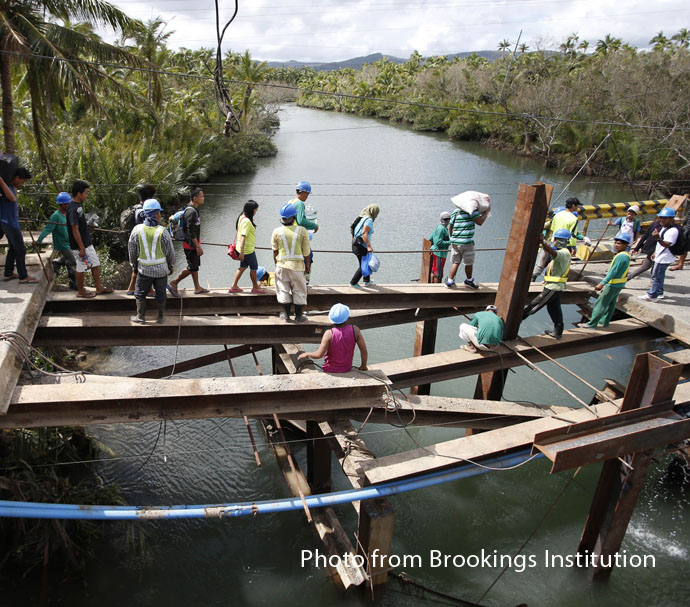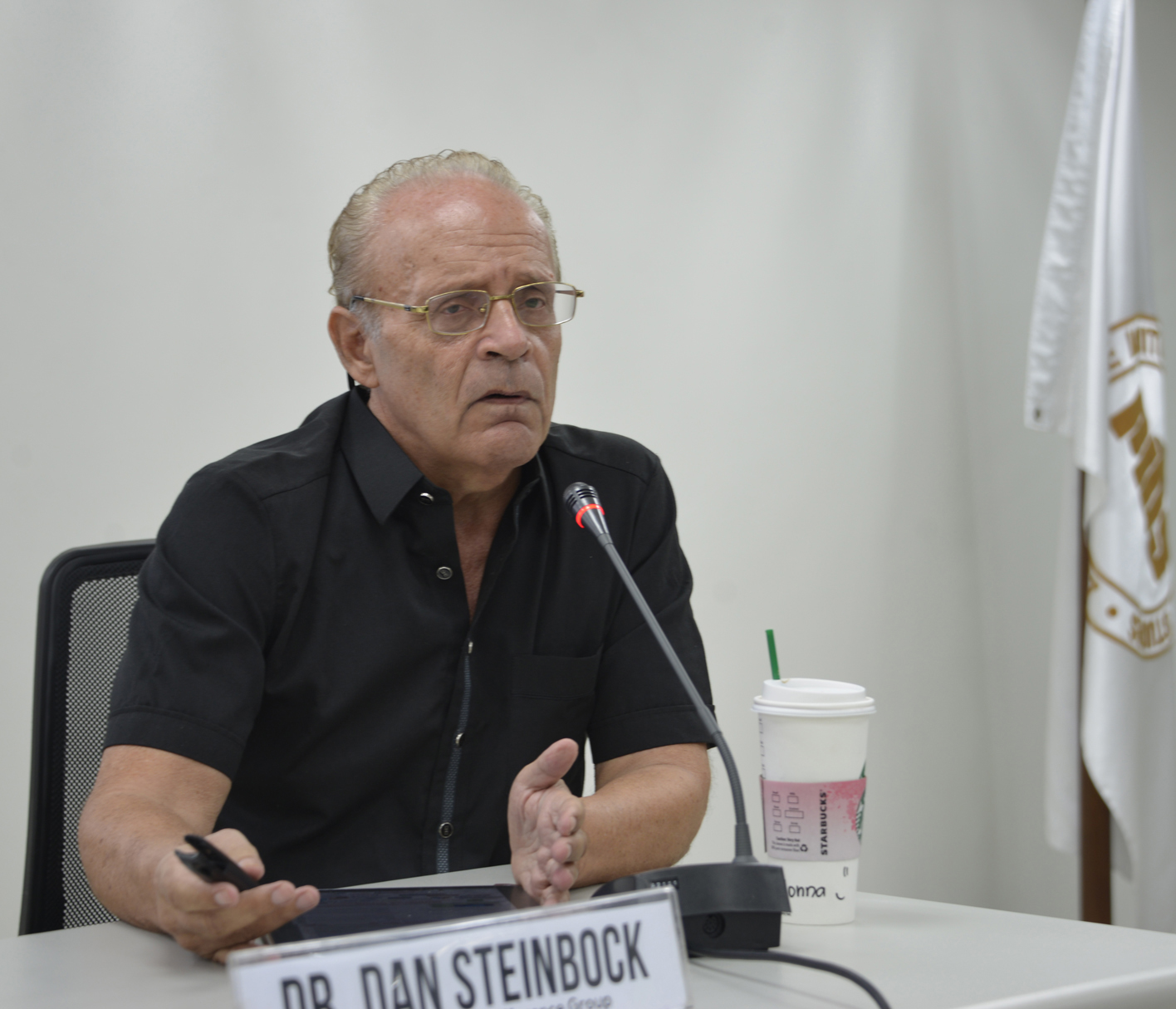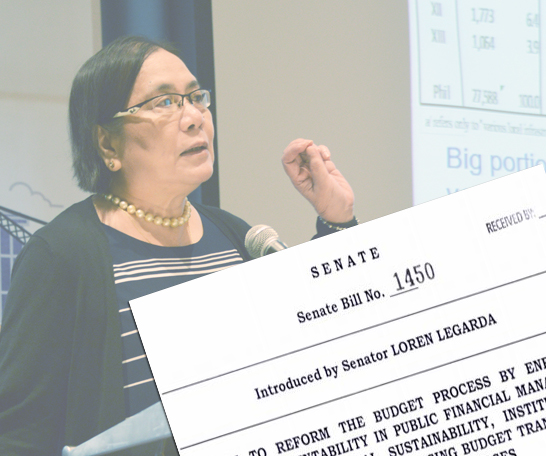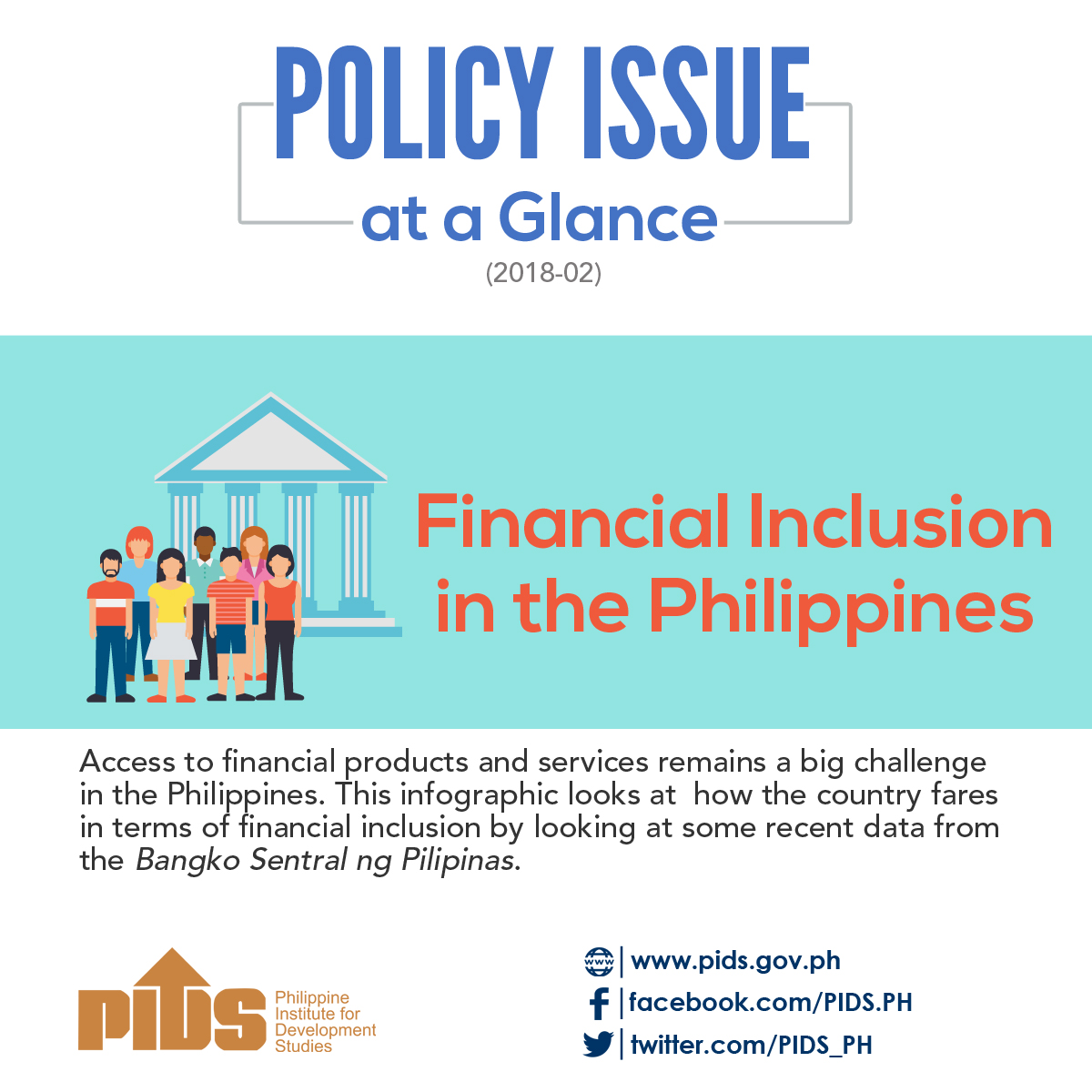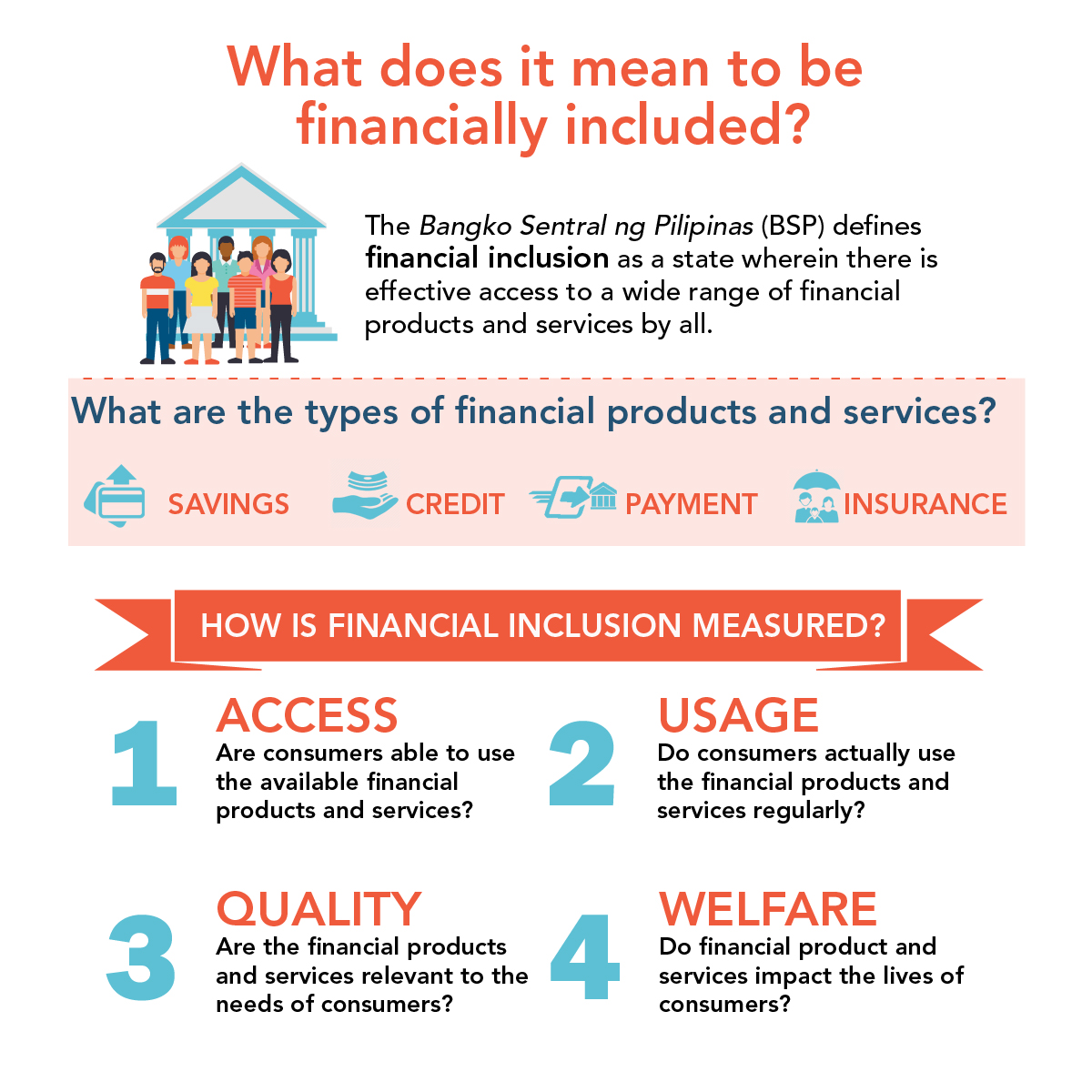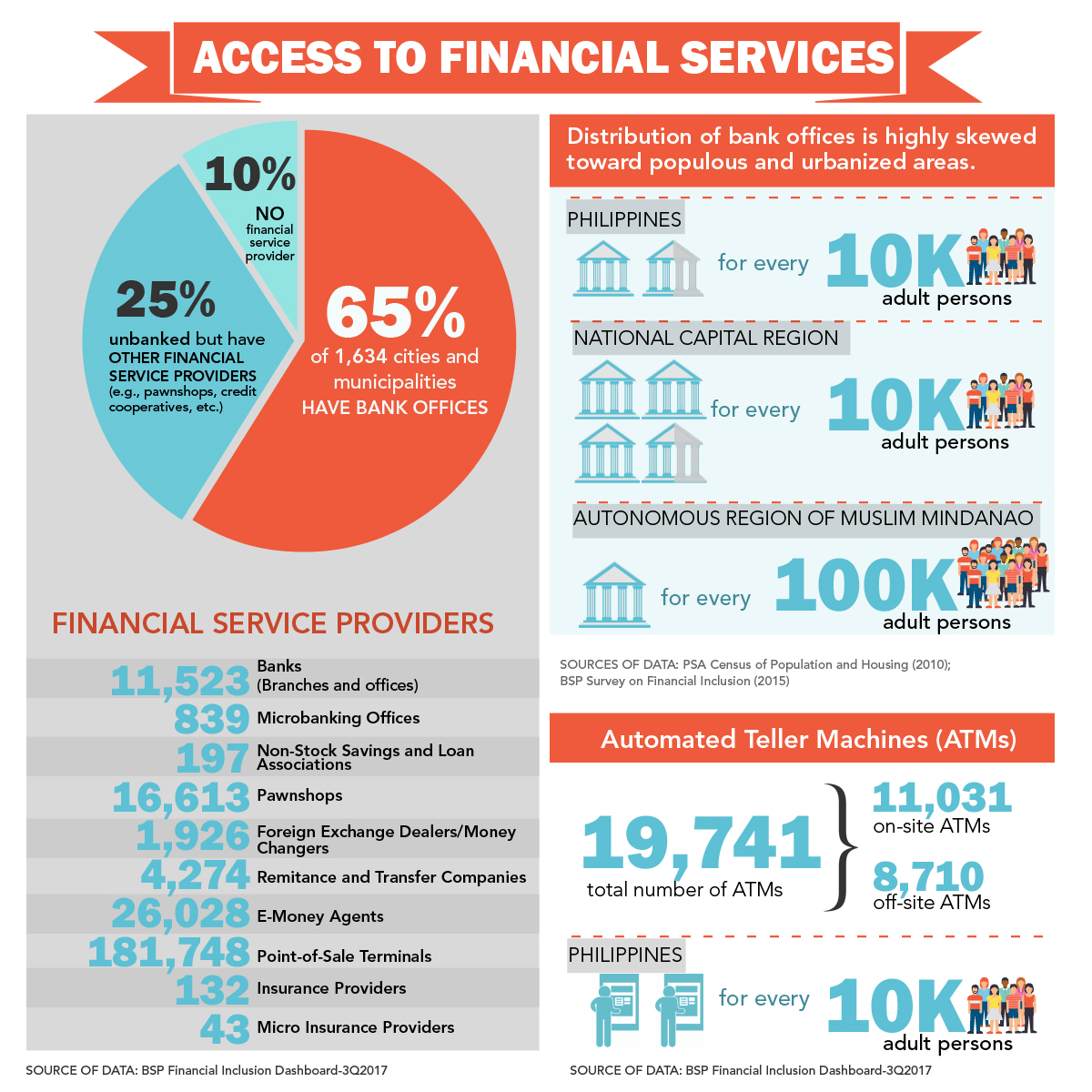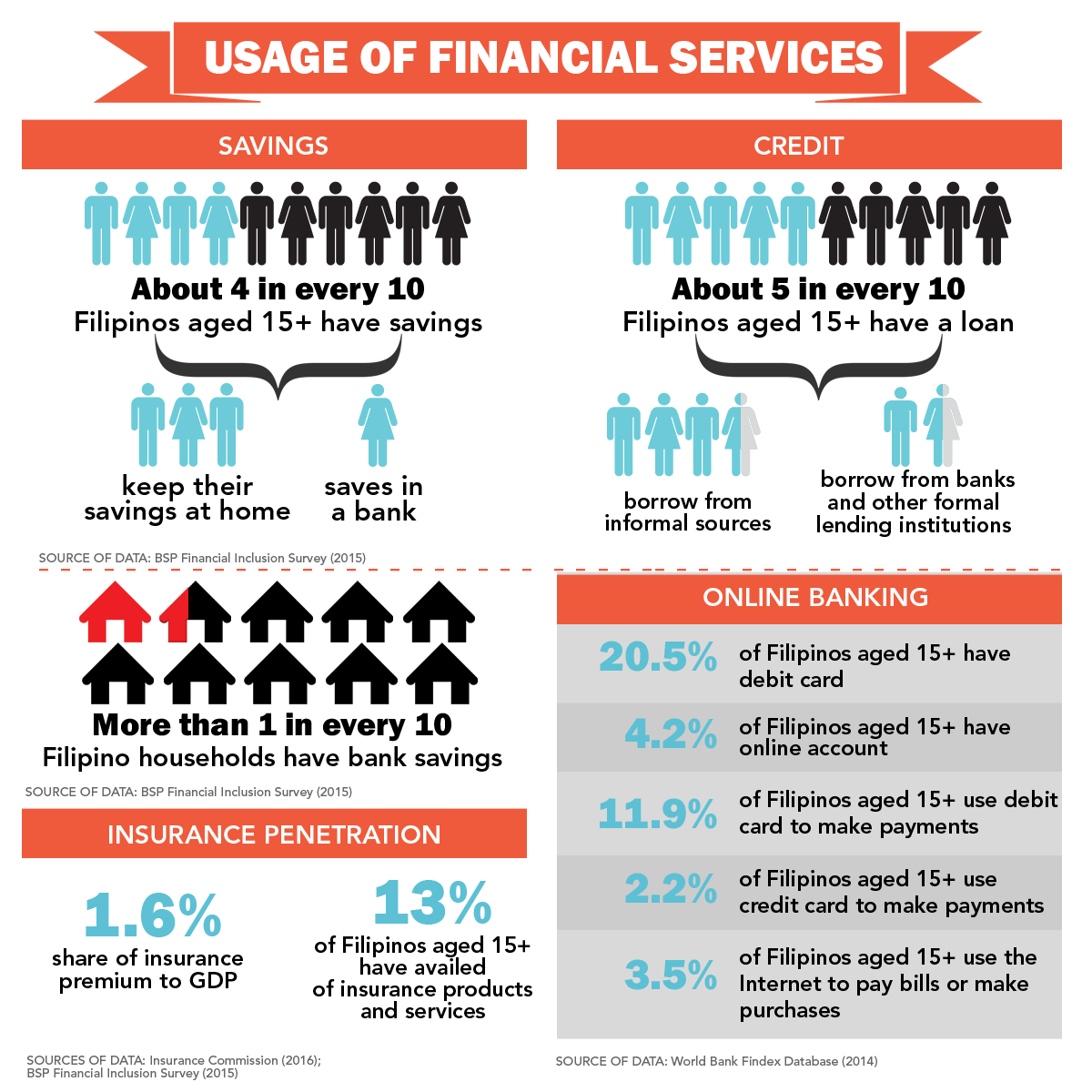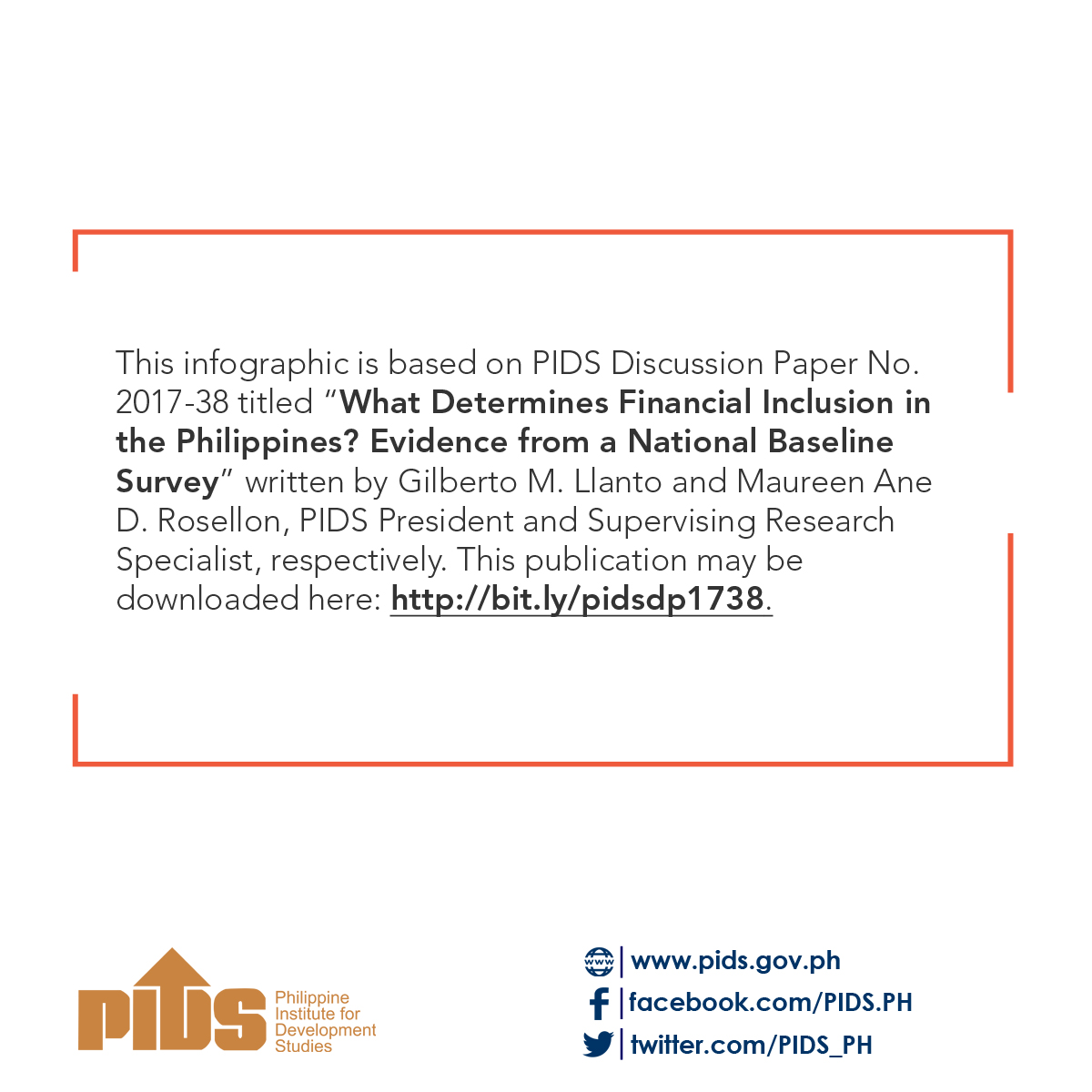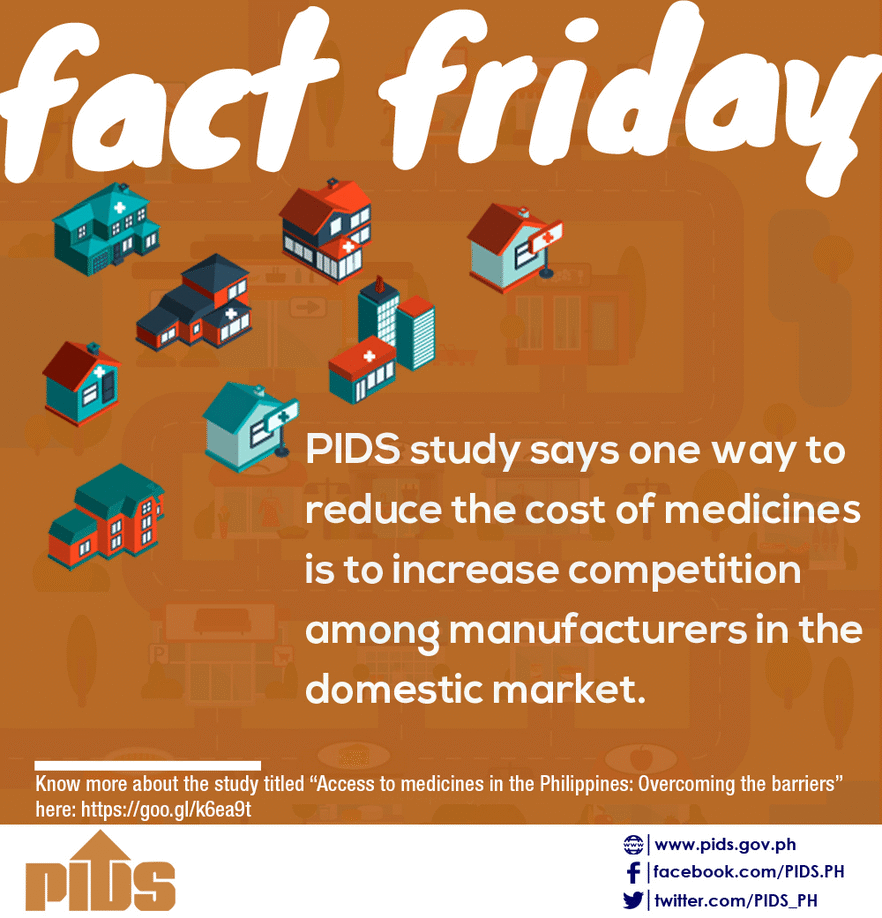Having trouble reading this email? View it in your browser. |
||||
 |
||||
|
||||
IN FOCUS: The Philippines’ persistent gender gap
According to the WEF, this decline from 7th in 2016 in the country’s global ranking is due to its failure to address the gender wage gap in several local industries. In a study, PIDS researchers Jose Ramon Albert and Jana Flor Vizmanos confirmed this claim. They found that men remain better compensated in the areas of services, trade, and manufacturing, which are among the country’s major sources of growth. Such is the case despite the huge employment share of women in these sectors. The story is worse in the case of persons with disabilities (PWDs). Comparing the economic activities of men and women with disabilities, PIDS researchers Aubrey Tabuga and Christian Mina found that PWD women allot more work time to nonincome-generating jobs such as household duties and personal activities. Focusing on their economic participation in Cebu Province, Mina, in another study, also found them to be deprived of access to education, employment opportunities, and assistive devices and facilities. Aside from economic parity, the country still has to address other gender-related issues, such as violence against women and children (VAWC), political parity, and the reopening of its health and survival gender gap. In terms of VAWC, PIDS consultant Clarissa David noted a slow decline in the number of reported cases of sexual violence against women. Disturbingly, her study also revealed that more than 1 in every 10 women believe such violence is acceptable. Meanwhile, although the WEF report lauded the country for the substantial improvement in its political parity, a closer look at statistics will still reveal a glaring gap in the distribution of women and men leaders in the country. For instance, David, Albert, and Vizmanos, in another study, noted a decline in the share of women leaders in local elective posts, from 20 percent in 2010 down to merely 11 percent in 2013. Filipino women are likewise underrepresented in highest positions in the private sector. These issues clearly show that there is still a lot to be done to realize gender parity in the Philippines. Promoting the economic empowerment of women will not only enhance their participation in society but will also help curb sexual and domestic violence against them. Women should have equal opportunities as men in decisionmaking. This can be made possible by having more women leaders in decisionmaking positions in both government and industry. Studies that delve into the various aspects of and issues in gender and development are also needed to provide a broader and more nuanced perspective on gender equalities. You may access PIDS studies on gender from the Socioeconomic Research Portal for the Philippines. Simply type ‘gender’, ‘gender equality’, ‘VAWC’, ‘women', and other relevant keywords in the Search box.
|
March 22, 2018, 1:30–4:30PM April 10, 2018, 9:30AM–3:00PM ------------------------------------------
Looking for a website where you can easily access socioeconomic references and materials? If your answer is yes, then SERP-P is for you. Know more about the Socioeconomic Research Portal for the Philippines (SERP-P) in this video.
------------------------------------------
The Philippine Journal of Development is a professional journal published by the Philippine Institute for Development Studies. It accepts papers that examine key issues in development and have strong relevance to policy development. As a multidisciplinary social science journal, it accepts papers in the fields of economics, political science, public administration, sociology, and other related disciplines. It considers papers that have strong policy implications on national or international concerns, particularly development issues in the Asia-Pacific region. CLICK HERE for the guidelines in the preparation of articles. Submissions and inquiries may be sent to PJD@mail.pids.gov.ph. |
|||
PIDS Book 2018-01: From Evidence to Policy: Celebrating 40 Years of Policy Research From Evidence to Policy: Celebrating 40 Years of Policy Research is a volume intended for a wide audience with the intent to highlight the role of research in evidence-based policymaking process. This collection of essays will show the readers the rich history of the Philippine Institute for Development Studies (PIDS) from the moment it was founded to its more recent triumphs as one of the top-ranking think tanks in the world. Written by former PIDS officials and senior researchers, this volume will serve as a good introduction to aspiring policy researchers and a sentimental trip down memory lane for the veterans of the policy process. Click here to download the electronic copy of the book. DISCUSSION PAPER DP 2018-01: Urban and Rural Households' Energy Use: Sets, Shocks, and Strategies in the Philippines The paper aims to analyze the determinants of household energy portfolio in urban and rural areas and to determine how price shocks and weather variabilities affect energy use in the Philippines. It confirms that energy switching is observed among high-income urban and rural households while energy stacking is observed among rural households—a response to heat index deviation and LPG price shock. The paper also finds that households' energy portfolios have components comprising of modern sources as energy anchors and a component that is most likely to adjust in response to price and weather-related shocks. Click here to download the paper.
|
||||
Filipino women remain sorely underrepresented in the highest positions in both the government and industry, where the most important policies are decided. Top-level positions in government include elective and appointive positions across the legislative, executive, and judicial branches. In industry, these positions include chief-level positions, board memberships, and director positions. READ MORE
“There is no single best expenditure assignment in a federal setup. The same is true with tax assignment,” said Philippine Institute for Development Studies (PIDS) fiscal expert and Senior Research Fellow Rosario Manasan during the forum titled “Why pursue Federalism? Why not just amend the Local Government Code?” held at Congress recently. The forum was jointly organized by PIDS and the Congressional Planning and Budget Research Department of the House of Representatives. Manasan stressed this in response to fiscal issues that may arise should the government decide to adopt a federal system of government. READ MORE
The Agribusiness Venture Arrangements (AVAs) and Sugarcane Block Farming (SBF), two government initiatives aimed at boosting farm productivity and income of agrarian reform beneficiaries (ARBs), should be encouraged. According to a study by state think tank Philippine Institute for Development Studies (PIDS), AVAs and SBF can be successful as long as adequate government support is given to ARBs from the farm production stage to marketing and postproduction activities. Likewise, government must provide a policy environment for Philippine exports crops to be competitive. READ MORE
State think tank Philippine Institute for Development Studies (PIDS) welcomed its new and first woman president, Dr. Celia M. Reyes. Reyes, a senior research fellow at PIDS for over two decades, succeeded Gilberto M. Llanto who served as president from July 1, 2013 to February 28, 2018. Llanto has been appointed to the PIDS Board as a trustee. READ MORE
Preparing for a disaster is one thing, but recovering from a disaster is another. While much has been done to boost disaster preparedness in the country, the country still lags behind in the aspect of postdisaster reconstruction, a study published by state think tank Philippine Institute for Development Studies (PIDS) revealed. According to Deanna Villacin, Tatum Ramos, and Marife Ballesteros, PIDS consultant, former research assistant, and vice-president, respectively, the government’s current financing instruments are “inadequate to meet the needs to address medium to severe [disaster] events” in the country. READ MORE
Manufactured controversies are threatening the economic growth of the Philippines, a leading policy expert on global market warned on Wednesday. During a seminar at the Philippine Institute for Development Studies (PIDS), Dr. Dan Steinbock, a research director at the India, China, and America Institute, revealed that the country has become a victim of serious international misunderstandings, which have prevented its prospective investors from getting the real picture of its economy. READ MORE
One way to reduce medicine costs is to increase competition among manufacturers in the domestic market, said Gilberto Llanto and Ramon Clarete, president and consultant of state think tank Philippine Institute for Development Studies (PIDS), respectively. Citing data from IQVIA, a global company that offers information, innovative technology, and contract research services on health care, the authors explained that the market shares shifted significantly from originator medicines to generics between 2006 and 2015. READ MORE
A study published by state think tank Philippine Institute for Development Studies (PIDS) urged the Asia-Pacific Economic Cooperation (APEC) economies to use its labor market information system to help address unemployment and job mismatch in the region.
Swinging from a multiyear obligation budget to a cash-based appropriation system might be too radical and disruptive for the country, said public finance expert Dr. Rosario Manasan, a senior research fellow at the Philippine Institute for Development Studies (PIDS). Manasan stressed this in her policy note that examines Senate Bill (SB) 1450, otherwise known as the Budget Reform Bill. The bill, which is authored by Senator Loren Legarda, seeks to modernize the Philippine budgetary system. SB 1450 limits the validity of the cash-based budget to one year. READ MORE |
||||
POLICY ISSUE AT A GLANCE Financial Inclusion Access to financial products and services remains a big challenge in the Philippines. This infographic looks at how the country fares in terms of financial inclusion by looking at some recent data from the Bangko Sentral ng Pilipinas.
To view in actual size, visit the PIDS website or the PIDS Facebook page.
FACT FRIDAY Every Friday, PIDS releases nuggets of research results culled from different PIDS studies. View the latest PIDS #FactFriday issues in the slideshow below.
Like us on Facebook for more #FactFriday issues. |
||||
Need help? Have feedback? Feel free to contact us. © 2018 Philippine Institute for Development Studies.
|
||||
 The Philippines slips to the 10th rank in the latest Global Gender Gap Index by the World Economic Forum (WEF). It remains the most gender-equal nation, however, in Southeast Asia.
The Philippines slips to the 10th rank in the latest Global Gender Gap Index by the World Economic Forum (WEF). It remains the most gender-equal nation, however, in Southeast Asia. 
.jpg)
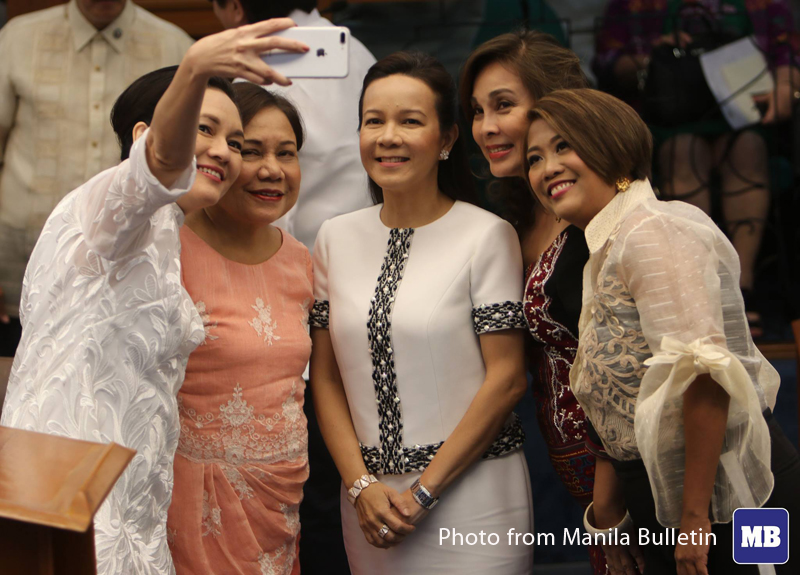
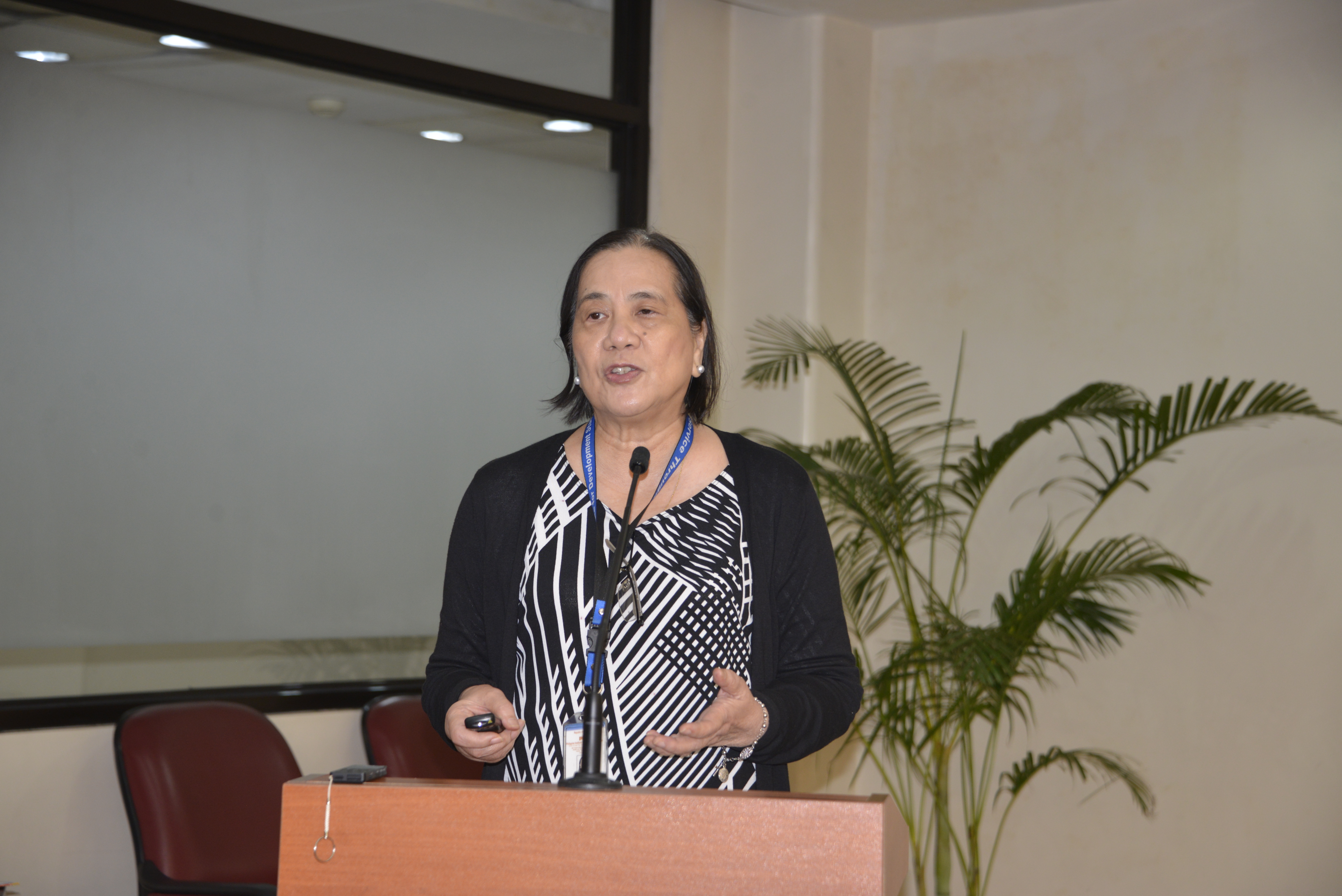
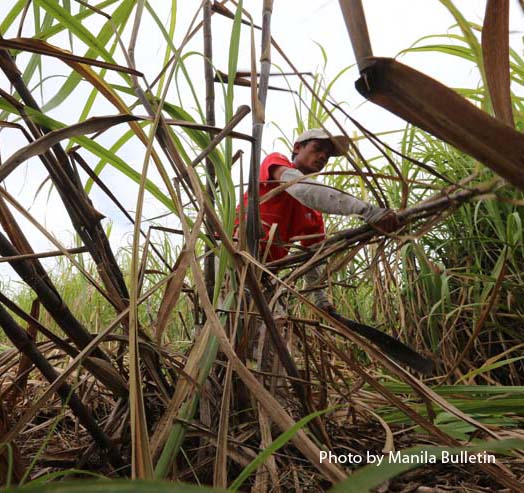
.jpg)
